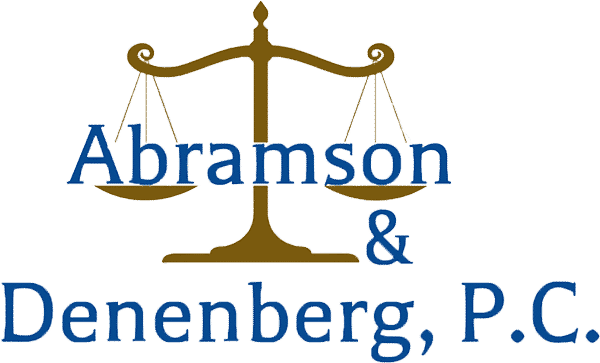What Rights Do Tenants Have in Pennsylvania?
Landlords and tenants have rights and responsibilities they should both uphold for a smooth landlord-tenant relationship. Renters’ rights exist to enhance a habitable living environment and protect tenants from unfair treatment based on a clear understanding of the lease terms. Skilled Philadelphia civil rights advocates provide an overview of these rights.
Equal Housing Rights
The Fair Housing Act stipulates that landlords must uphold equitable inclusion and consideration for everyone regardless of color, race, religion, gender, national origin, disability, or family status. Recently, there has been a growing awareness and proactive approach towards fair housing practices.
The positive change has brought an evident increase in the commitment toward housing equality as far as race, family status, and disability are concerned. If you’re a tenant who has experienced discriminatory practices during an apartment search or your lease, contact experienced Philadelphia tenant representation lawyers to help you fight for your rights.
The Right to a Decent Home
The law requires all tenants to keep their rental properties in decent living conditions. The implied warranty of habitability applies when someone rents a place to live, whether a mobile home, apartment, house, or a lot in a mobile home park. Landlords should keep up with this responsibility whether or not there is a written lease or an oral agreement with the tenants.
While landlords aren’t required to provide a perfect place to live, they must make the necessary repairs and ensure the living space doesn’t threaten tenants’ safety or health. Problems such as leaking roofs, roach infestation, or lack of heat are issues a landlord should take care of to ensure a decent living space for their tenants.
The Right to Clear and Fair Lease Terms
Rental laws in Pennsylvania encourage tenants and landlords to enter into transparent and fair rental agreements. Every contract should clearly define each party’s rights and responsibilities, leaving no room for ambiguity. Rental agreements foster a mutually beneficial relationship between landlords and tenants for a more settled and secure tenancy period.
In the Pennsylvania legal landscape, a fair rental agreement closely aligns with the tenants’ rights on the lease, the first being the stipulation on security deposits. Tenant representation attorneys in Philadelphia explain that the Landlord and Tenant Act has provisions for how much landlords can charge as security deposits to protect tenants’ financial interests.
The regulations also specify the conditions under which a landlord can deduct or withhold these deposits. As a tenant, familiarize yourself with these laws to know when your rights are violated. With this knowledge, you’ll be empowered to take legal action if financial disputes arise. Tenant representation attorneys in Pennsylvania can provide more guidance.
What Can I Do If My Landlord Breaches the Implied Warrant of Habitability?
If you notify your landlord of any repairs that need to be made and they don’t take the appropriate action, tenant representation lawyers in Pennsylvania advise that you can do the following:
- Terminate your lease to end your duty to pay rent
- Withhold all or part of the rent until the flaw is corrected
- Repair the defects and deduct the cost of repairs from the monthly rent
- File legal action to recover the repair costs and compensation for other damages suffered while the premises were inhabitable
Each remedy has a risk associated with it, so consult extensively with knowledgeable civil rights advocates in Philadelphia to weigh your options.
Can My Landlord Evict Me from a Rental Property?
If problems arise between you and your landlord, try to resolve the issue fairly to both of you. Mediation programs exist that can help you resolve the dispute. However, the law says that your landlord can evict you if:
- You breach the rental contract, whether written or oral
- You don’t pay rent
- The landlord wants you to move because your lease period is over
If you have a written lease, you have the right to stay on the premises until the end of the lease period, provided you live up to the end of the lease. Without a written lease, the law assumes a month-to-month lease agreement, which either you or your landlord can end at the end of any month with or without a reason.
When Is It Illegal for My Landlord to Evict Me?
Some reasons for eviction are illegal, and you can seek legal redress through skilled tenant representation lawyers in Pennsylvania if you’re evicted under the following circumstances:
- Your landlord discriminates against you based on your race, color, religion, sex, national origin, age, religious affiliation, or that of a household member
- A member of your household is disabled or uses a guide dog or other support animal
- You or a member of your household is pregnant or has children
- Exercising your renter’s rights, such as complaining about bad housing conditions to local housing officials
If your landlord evicts you for not paying rent, you may be able to prevent the eviction if you prove you refused to pay due to bad living conditions. Ensure you have proof that you complained to the landlord about severe defects, but they failed to make repairs.
A Skilled Civil Rights Advocates Protecting Your Renters’ Rights
Understanding your rights as a renter is vital in protecting yourself if issues arise that create a dispute between you and your landlord. The legal provisions enshrined in the Landlord and Tenant Act generate the framework for resolving disputes while protecting you from unfair practices.
Don’t suffer in silence if you feel your rights have been violated and don’t know what to do. The Philadelphia tenant representation attorneys at Abramson & Denenberg, P.C. can evaluate your case and provide legal counsel on protecting your rights. Call us at 215-398-7066 to schedule a FREE case consultation.

